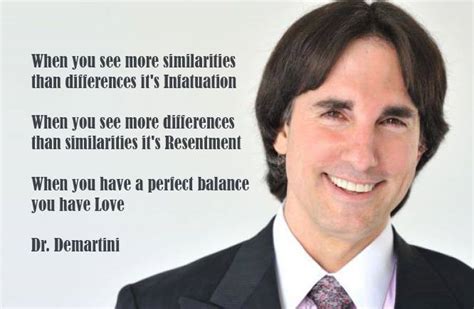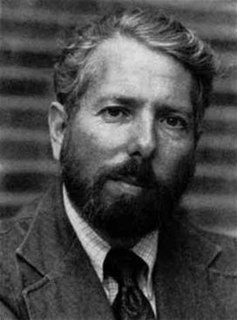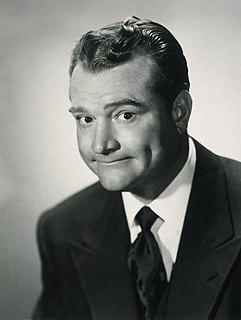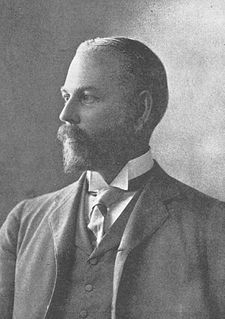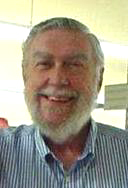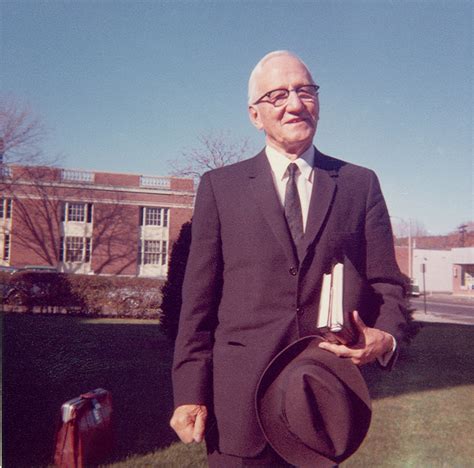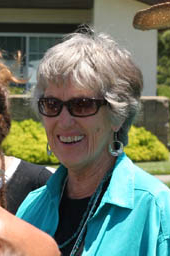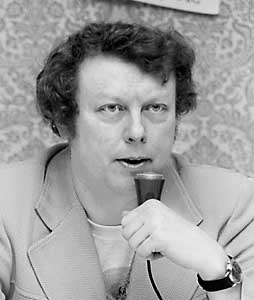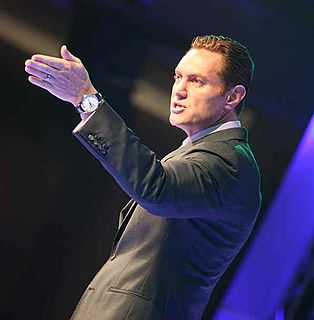Top 1200 Actions Quotes & Sayings - Page 4
Explore popular Actions quotes.
Last updated on December 23, 2024.
Not every action or emotion however admits of the observance of a due mean. Indeed the very names of some directly imply evil, for instance malice, shamelessness, envy, and, of actions, adultery, theft, murder. All these and similar actions and feelings are blamed as being bad in themselves; it is not the excess or deficiency of them that we blame. It is impossible therefore ever to go right in regard to them - one must always be wrong.
If we can manage to refrain from harming others in our everyday actions and words, we can start to give more serious attention to actively doing good, and this can be a source of great joy and inner confidence. We can benefit others through our actions by being warm and generous toward them, by being charitable, and by helping those in need.
If we only look far enough off for the consequence of our actions, we can always find some point in the combination of results by which those actions can be justified: by adopting the point of view of a Providence who arranges results, or of a philosopher who traces them, we shall find it possible to obtain perfect complacency in choosing to do what is most agreeable to us in the present moment.
Actions seems to follow feeling, but really actions and feeling go together; and by regulating the action, which is under the more direct control of the will, we can indirectly regulate the feeling, which is not. Thus the sovereign voluntary path to cheerfulness, if our cheerfulness be lost, is to sit up cheerfully and to act and speak as if cheerfulness were already there.
People's conceptions about themselves and the nature of things are developed and verified through four different processes: direct experience of the effects produced by their actions, vicarious experience of the effects produced by somebody else's actions, judgments voiced by others, and derivation of further knowledge from what they already know by using rules of inference
Potentially, a government is the most dangerous threat to man's rights; it holds a legal monopoly on the use of physical force against legally disarmed victims. When unlimited and unrestricted by individual rights, a government is man's deadliest enemy. It is not as protection against private actions, but against governmental actions that the Bill of Rights was written.
The emotion is the execution of a very complex program of actions. Some actions that are actually movements, like movement that you can do, change your face for example, in fear, or movements that are internal, that happen in your heart or in your gut, and movements that are actually not muscular movements, but rather, releases of molecules.
Thus the law of nature stands as an eternal rule to all men, legislators as well as others. The rules that they make for other mens actions, must, as well as their own and other mens actions, be conformable to the law of nature, i.e. to the will of God, of which that is a declaration, and the fundamental law of nature being the preservation of mankind, no human sanction can be good, or valid against it.
I research, write, travel and teach. I rarely arrange for spare time. If we do not fill our days with high priority actions they will fill with low priority actions. I would prefer to live my life according to my highest priorities and do what I love, which again is research, write, travel and teach. It is my mission and calling. It is what inspires me. It is my destiny.
For the utilitarian, there is a fact of the matter about the good (the general happiness, or whatever conception of the good the utilitarian adopts) and about which actions or moral rules would contribute to maximizing the good. For the rational intuitionist, there are truths about which actions should be done and not done.
The ends do not justify the means. If our actions will bring harm to others, even in the service of some 'good,' they are almost certainly deluded. If our actions do not come from a kind heart, from loving courage and compassion, they are deluded. If they are based on a distinction between 'us' and 'them,' they stem from delusion. Only to the extent that we act from the wisdom of no separation, understanding how we are woven together, will our intention bring benefit.
Accurate processing of information about outcomes is no simple task under the variable conditions of everyday life . . . usually, many factors enter into determining what effects, if any, given actions will have, Actions, therefore, produce outcomes probabilistically rather than certainly. Depending on the particular conjunction of factors, the same course of action may produce given outcomes regularly, occasionally, or only infrequently
If it were possible for us to have so deep an insight into a man's character as shown both in inner and in outer actions, that every, even the least, incentive to these actions and all external occasions which affect them were so known to us that his future conduct could be predicted with as great a certainty as the occurrence of a solar or lunar eclipse, we could nevertheless still assert that the man is free.
Although a person acting under authority performs actions that seem to violate standards of conscience, it would not be true to say that he loses his moral sense. Instead, it acquires a radically different focus. He does not respond with a moral sentiment to the actions he performs. Rather, his moral concern now shifts to a consideration of how well he is living up to the expectations that the authority has of him.
Good thoughts and actions can never produce bad results; bad thoughts and actions can never produce good results … We understand this law in the natural world, and work with it; but few understand it in the mental and moral world—although its operation there is just as simple and undeviating— and they, therefore, do not cooperate with it.
Any one who studies the state of things which preceded the French Revolution will see that that tremendous catastrophe came about from so excessive a regulation of men's actions in all their details, and such an enormous drafting away of the products of their actions to maintain the regulating organization, that life was fast becoming impracticable. And if we ask what then made, and now makes, this error possible, we find it to be the political superstition that governmental power is subject to no restraints.
Quite often governments are one way and the people are another. You can't judge the many by the actions of a few. What if Americans were all judged by the actions of the Bush administration and people did not know the truth? That America is full of people who are, at present, poorly represented and poorly catered to by the media. All these places I go, people say that America is good and I'm like, "Well, thank you, I'm glad you can see it." And you know - we are good, we've just got work to do.
My father . . . used to say, 'I need my anger. It obliges me to take action.' I think my father was partly right. Anger arises, naturally, to signal disturbing situations that might require action. But actions initiated in anger perpetuate suffering. The most effective actions are those conceived in the wisdom of clarity.
If you are deemed insane, then all actions that would oherwise prove you are not do, in actuality, fall into the framework of an insane person’s actions. Your sound protests constitute denial. Your valid fears are deemed paranoia. Your survival instincts are labeled defense mechanisms. It’s a no-win situation. It’s a death penalty really.
Psychologism is, I believe, correct only in so far as it insists upon what may be called 'methodological individualism' as opposed to 'methodological collectivism'; it rightly insists that the 'behaviour' and the 'actions' of collectives, such as states or social groups, must be reduced to the behaviour and to the actions of human individuals. But the belief that the choice of such an individualist method implies the choice of a psychological method is mistaken.
Smith could not be expected to have anticipated the horrors that were to come. But even in his own time, he was a defender of certain state actions that he thought necessary in order to safeguard the good effects of commercial society (Smith did not speak of 'capitalism' and was acquainted only with an early undeveloped form of it). Among these state actions the chief was general public education.
Then you know that Sam was the true hero of the tale,' Sayna said. 'That he faced far greater and more terrible foes than he ever should have had to face, and did so with courage. That he went alone into a black and terrible land, stormed a dark fortress, and resisted the most terrible temptation of his world for the sake of the friend he loved. That in the end, it was his actions and his actions alone that made it possible for light to overcome darkness.
in the place I am from ... a grave is topped off with a huge mound of loose earth - carelessly, as if piled up in child's play, not serious at all - because death is just another way of being, and the dead will not stay put, and sometimes the actions of the dead are more significant, more profound, than their actions in life, and no structure of concrete or stone can contain them.
Authenticity is an alignment between your beliefs, your desires and your choices in the world. Desires that are in alignment with core beliefs generate powerful actions. Like a wave that draws from the depths of the ocean, actions connected to your authentic self are more likely to manifest your intentions.
It cannot be said too often that actions are good or bad in the light of consequences, and that a clear perception of consequences would control actions. That which increases the sum of human happiness is moral; and that which diminishes the sum of human happiness is immoral. . . . Blind, unreasoning obedience is the enemy of morality.
The left hemisphere acts as an "interpreter," watching the actions and behaviors of the body and assigning a coherent narrative to these events. And the left hemisphere works this way even in normal, intact brains. Hidden programs drive actions, and the left hemisphere makes justifications. This idea of retrospective storytelling suggests that we come to know our own attitudes and emotions, at least partially, by inferring them from observations of our own behavior.
When you invade Grenada, or when you invade Panama to capture a disreputable person, or when you bomb the Bosnia area, you can always find justification for those military actions, but it's really surprising how many times in those 25 years - that's a long time - the United States has interceded, I wouldn't say most of the time militarily, but a lot of those have been military actions.
And here one must not that hatred is acquired just as much by means of good actions as by bad ones; and so, as I said above, if a prince wishes to maintain the state, he is often obliged not to be good; because whenever that group which you believe you need to support you is corrupted, whether it be the common people, the soldiers, or the nobles, it is to your advantage to follow their inclinations in order to satisfy them; and then good actions are your enemy.
A true noun, an isolated thing, does not exit in nature. Things are only the terminal points, or rather the meeting points of actions, cross sections cut through actions, snapshots. Neither can a pure verb, an abstract motion, be possible in nature. The eye sees noun and verb as one, things in motion, motion in things.
So behave that the odor of your actions may enhance the general sweetness of the atmosphere, that when we behold or scent a flower, we may not be reminded how inconsistent your deeds are with it; for all odor is but one form of advertisement of a moral quality, and if fair actions had not been performed, the lily would not smell sweet. The foul slime stands for the sloth and vice of man, the decay of humanity; the fragrant flower that springs from it, for the purity and courage which are immortal.
Ever argue with a female and, in the middle of the argument, you no longer feel safe because of her actions? She may start pacing back and forth real fast, breathing out her nose. You know what my girl do? When she get mad, she start talking in the third person. That's scary as hell because that's her way of telling me that from this point on, she is not responsible for none of her actions.
The Christian is free from all other human beings. He does not have to live over against others, controlled by their actions and responses. Rather, he lives according to Christ's commands. This is Christian freedom. It is a freedom unknown by others. It is not just when others do the things that we like that we act properly toward them; we are free to do good even when they don't because our actions are not dependent on their responses. It is the Lord Christ when we serve!
Although actions speak louder than words, I believe it is our intentions that reveal our soul. Refrain from judging others based solely on their words and actions, and seek to know their deepest intentions so that you can know who they truly aspire to be, and support them in becoming the best version of themselves.
There will be an agreement in whatever variety of actions, so they be each honest and natural in their hour. For of one will, the actions will be harmonious, however unlike they seem. These varieties are lost sight of at a little distance, at a little height of thought. One tendency unites them all. The voyage of the best ship is a zigzag line of a hundred tacks. See the line from a sufficient distance, and it straightens itself to the average tendency.
In the early Buddhist view, then, a persons identity resides not in an enduring self but in his actions (karma)- that is in the choices that shape these actions. Because the dispositions formed by previous choices can be modified in turn by present behaviour, this identity as choice-maker is fluid, its experience alterable. While it is affected by the past, it can also break free of the past.
The decision-makers should communicate the customer pictures and the logic of the strategies and actions. That communication allows employees throughout the organization to implement the strategies and actions, tweaking them appropriately in response to variations in the marketplace. It also allows employees to recognize information in the marketplace that contradicts the customer pictures, either because the pictures were not entirely correct or because customers have changed.
The motives of the best actions will not bear too strict an inquiry. It is allowed that the cause of most actions, good or bad, may be resolved into the love of ourselves; but the self-love of some men inclines them to please others, and the self-love of others is wholly employed in pleasing themselves. This makes the great distinction between virtue and vice.
Demean thyself more warily in thy study than in the street. If thy public actions have a hundred witnesses, thy private have a thousand. The multitude looks but upon thy actions; thy conscience looks into them: the multitude may chance to excuse thee, if not acquit thee; thy conscience will accuse thee, if not condemn thee.
If you haven’t already clearly defined your values, you may find yourself making choices that conflict with what you want. If, for example, honesty is a big thing for you, but you hang out with liars, there’s a conflict. When your actions conflict with your values, you’ll end up unhappy, frustrated, and despondent. In fact, psychologists tell us that nothing creates more stress than when our actions and behaviors aren’t congruent with our values.
One of the things that has really hit home for me is that the world is how we decide it is going to be. Very few things just happen. They grow out of history, and they grow out of the present, and the more we can get a sense of how our actions lead into other actions in the future, hopefully we'll learn to make better decisions.
The most important human endeavor is the striving for morality in our actions. Our inner balance and even our very existence depend on it. Only morality in our actions can give beauty and dignity to life. Albert Einstein It is the function of art to renew our perception. What we are familiar with we cease to see. The writer shakes up the familiar scene, and, as if by magic, we see a new meaning in it.









